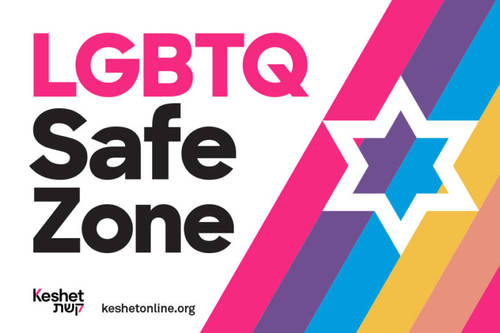Illumin8! Reflections
The word "Hanukkah" means "dedication," which is about devoting someone or something for a particular purpose. For each of the holiday's eight nights, Rabbi Knopf and several congregants offer a reflection. We hope you'll use these ideas when lighting your candles each night. And, just maybe, you'll be inspired to dedicate yourself to a higher purpose this year. Hanukkah Same'ah! Happy Hanukkah!
Night 2: The Dignity of Diversity and Hanukkah
By Bari Cohen
In a free country, such as the one we are blessed to live in, diversity is often taken for granted. We are a melting pot of colors, nationalities, religions, political and social views. We are a nation of varied socioeconomic backgrounds. There is beauty in the endless mixture that we see and experience, if we choose to look for it. The existence of such profound variety has enhanced us as a nation and made us a better country in many ways. Making the choice, as individuals, to appreciate the array of people, learn new ideas, and study new philosophies are experiences that makes one smarter, deeper, wiser, and probably stronger. Diversity truly is a worthy pursuit.
When my daughters were in preschool, one of the amazing JCC teachers taught the children a lesson on the limitless love each of us has inside. She used candles. The first candle’s flame represented all the love a person has to give. With the first candle, the teacher lit the second candle. The children saw that the flame from the first candle continued to burn brightly, and now the second candle’s flame burned on its own. Then the teacher lit a third candle, a fourth, and so on. The children saw how the original candle’s flame - love, was able to light many, many candles, without its own flame ever burning less bright, or disappearing. They saw, in a way a young child could understand, that the capacity for a person to love many, many people did not run out. It was not finite.
In our country, we never have to limit beliefs, ideas, or philosophies (providing that laws are obeyed, and that one group’s beliefs do not trample the rights of another group). There is enough space and energy for an endless diversity in thought and ideas. Like the flame representing love, the flame can represent our diversity. Because there is endless possibility for ideas/beliefs, we don’t have to limit people. We don’t have to mandate or politicize diversity. We need to give it room and respect to grow. Good, Godly ideas and values will attract people without needing to be promoted or legislated.
As Jews, we have flourished in this country because of the dignity of diversity, and the laws that support it. Jewish immigrants have acculturated into America’s society by retaining unique Jewish customs and practices while at the same time adapting attitudes and customs that are American. In this country, we have never had to make a stand to resist assimilation, forced conversion, or face losing our freedom or lives, in order to be Jewish.
The background to the story of Chanukah is a civil war precipitated by the decision to halt the widespread process of Hellenization. The Hasidim were zealous to maintain their Judaism. They were a minority compared to the assimilators. In 165 BCE when the Selecuids raided the treasury, which was kept IN the Temple, the Maccabees arrived on the scene and joined the Hasidim. Both wanted to revolt against Antiochus AND the Hellenistic Jews.
In that period of history, was diversity good for the Jews? Initially it seemed like it was because it allowed them to acculturate. But when did acculturation slip into assimilation and a disregard for the essence of their Judaism?
Is this a cautionary tale for American Jews? Hanukkah itself has been very assimilated by American culture. In what other areas of our Judaism has our assimilation progressed to a place that jeopardizes us? Each of us has to answer that individually. What I consider tolerable, you may not. However you answer the question, though, is between you and God. It is not my place to judge your decision, preach to you about why you should make a different decision, or shame you for your ideas on the matter. We don’t have to agree with each other. But we do have to respect each other. That is a demonstration of the dignity of diversity that affects each and every one of us.




